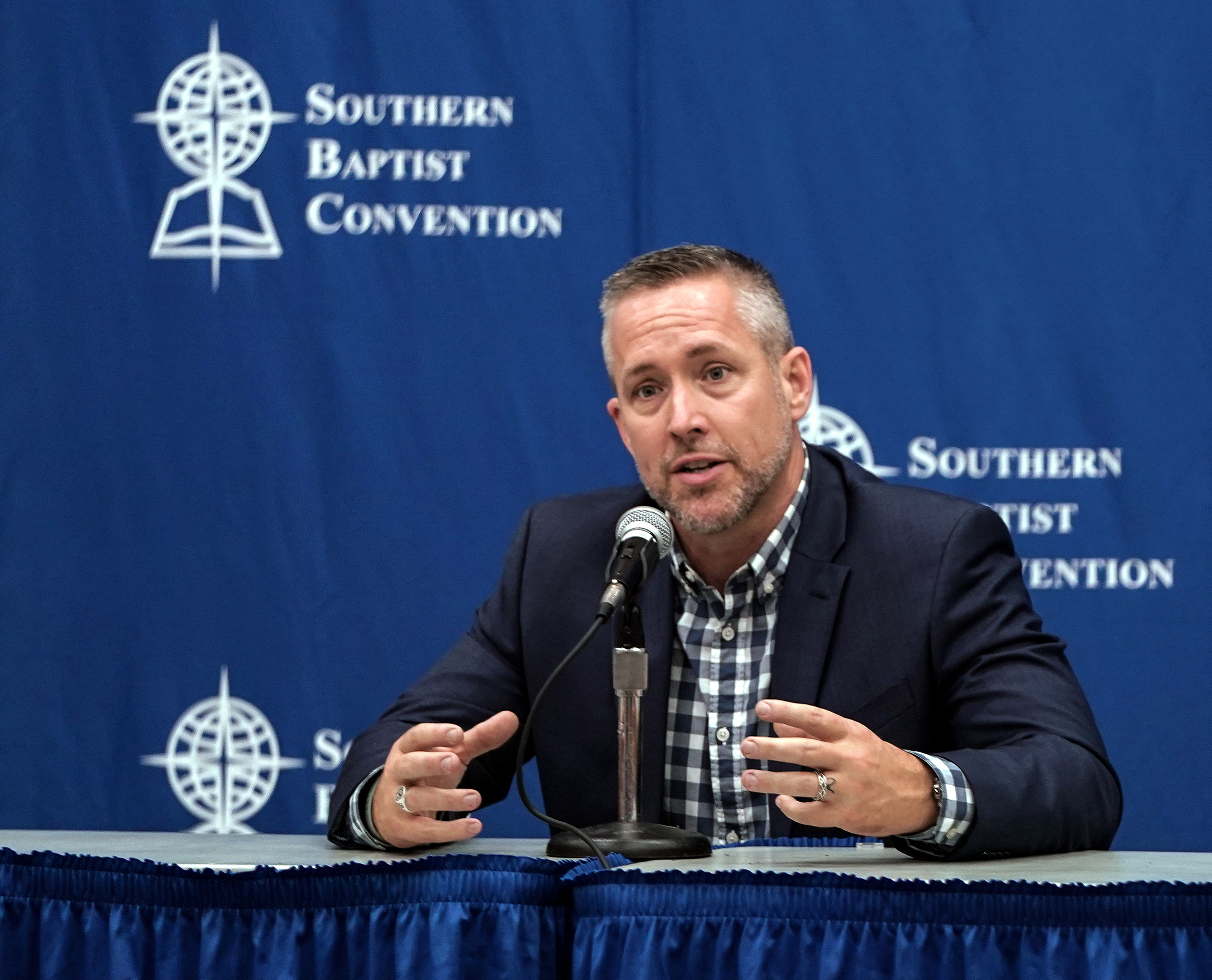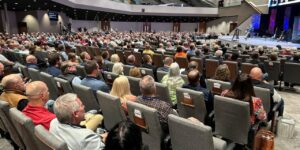
DALLAS (BP) — On the heels of an election many Southern Baptists believe was pivotal, J.D. Greear struck a conciliatory tone in response to questions about whether his presidency signals a sea change. He fielded inquiries on a range of issues during a press conference Tuesday (June 12) at the Southern Baptist Convention’s annual meeting.
 Greear, pastor of The Summit Church in Raleigh-Durham, N.C., was elected SBC president only hours before, receiving more than two-thirds of the vote. Ken Hemphill, former president of Southwestern Baptist Theological Seminary and administrator for North Greenville University, was also nominated for the convention’s top office.
Greear, pastor of The Summit Church in Raleigh-Durham, N.C., was elected SBC president only hours before, receiving more than two-thirds of the vote. Ken Hemphill, former president of Southwestern Baptist Theological Seminary and administrator for North Greenville University, was also nominated for the convention’s top office.
In his opening remarks, Greear reaffirmed six priorities that he outlined when his candidacy was announced earlier this year: gospel focus, diversity, evangelism, church planting, collegiate ministry and engaging younger Baptists in the SBC’s cooperative mission.
When asked whether he embodies the changing face of the SBC, Greear said, “What I don’t think this [election] represents is a passing of the baton where the older generation fades off into the sunset and the new, young generation is in charge. We walk forward together.”
He extended friendly gestures to Hemphill and messengers who supported Hemphill.
“Ken Hemphill has been a friend for a long time. He’s a godly man…. He would have been a fine leader of the Southern Baptist Convention,” Greear said.
He added, “I hope the 31 percent who voted for Ken … would see I want to be a president that goes forward with them, because they are a necessary part of the body of Christ.”
Greear’s call for cooperation also reached across lines of gender and ethnicity.
He described efforts toward greater ethnic diversity among SBC leadership as a “recognition that it’s something we desperately need in the days to come,” rather than a mere “act of generosity” by those already in seats of power.
Emphasizing his agreement with The Baptist Faith and Message (2000) on the role of men and women in the home and church, Greear said he wants convention offices and agencies to be “a place where women sit at the seats of influence. … There are perspectives that women bring to the conversation that men are not always aware of, because they don’t have the same experiences.”
When asked about plans to help women feel welcome, heard, valued and safe in Southern Baptist churches, in light of recent news stories about sexual immorality and assault, Greear charged Christian leaders to begin strengthening their policies and practices.
“We have to be safe places for women to report abuse. We have to be very quick — and by quick I mean immediate — in reporting the proper things to authorities,” Greear said. “There is an education problem in Southern Baptist churches, I think, because not everyone understands the laws.”
Calls for a convention-wide database to track sexual abusers have risen recently, coming from both inside and outside the SBC.
Asked to comment on a messenger’s motion earlier in the day to explore the feasibility of a database, Greear acknowledged that such initiatives are difficult, since Southern Baptist churches are autonomous and not under direction of SBC leadership. Yet, he described convention leaders, including himself, as “very open to a greater transparency that prioritizes the safety of the victim.”
Greear also fielded questions about the role of state conventions in Southern Baptist life and declining Baptism rates across the SBC.
He expressed appreciation for the Baptist State Convention of North Carolina, his home state, and praised the “long legacy” of church planting and other vital ministries provided by state conventions.
Greear affirmed the need for all ministries to conduct regular reviews of budgets and other resources to analyze their effectiveness, but denied that calls for such policies are “hostile” to state conventions. Instead, he described them as standard practice.
Greear said, “Every few years we have to ask, ‘What’s the best way to cooperate?’ What are things we did 100 years ago, or 50 years ago, that are no longer as effective?”
On declining baptism rates, he said the numbers indicate “a lot of unhealthy and sick churches” and that SBC leaders can “champion” and provide resources for evangelism.
“We’re praying for pastors and members,” Greear said, “for the spirit of God to move them to be the church that we need in our generation.”














